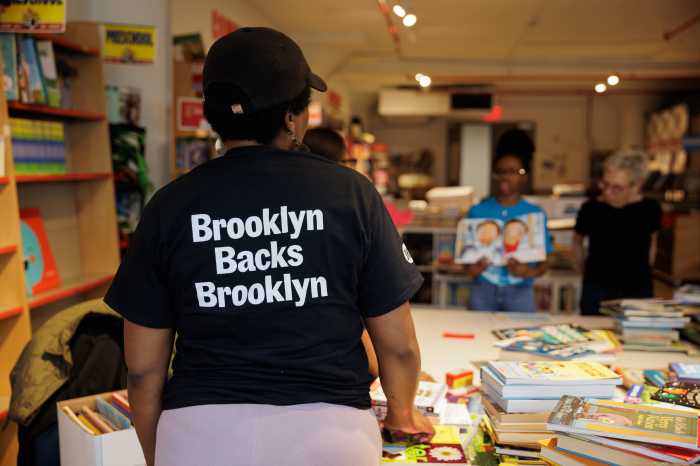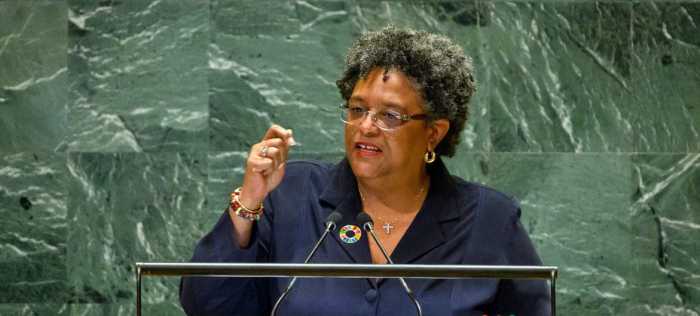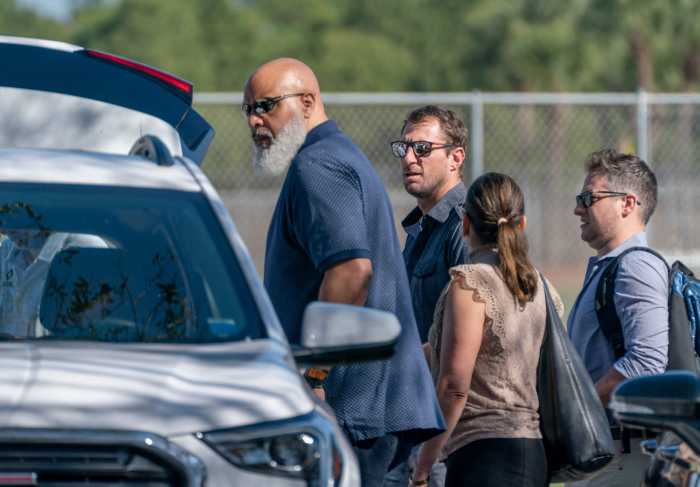Call it the Post-Mortem Olympics. Except for the Bill Clinton era, Democrats of our generation lose presidential elections every four years and then point fingers of blame, often at ourselves. No one engages in self-recrimination quite like a progressive.
Now we members of the lesbian, gay, bisexual and transgender community are picking up the torch. Some among us believe that LGBT issues, principally gay marriage, were responsible for John Kerry’s loss. Others say that’s ridiculous—that it’s never been possible to defeat a sitting president during wartime, no matter the other issues.
Who’s correct? The truth lays at the midpoint between two extremes. LGBT rights played a factor in the 2004 election, but not the overriding factor. In battleground states, President Bush’s strategist Karl Rove advanced a plethora of wedge issues like a thousand points of fright.
So let’s stop evaluating the impact of gay issues in the 2004 election. Our issues played a role, period, just like each of many other issues having nothing to do with LGBT rights. Now, as the other progressive constituencies in the Democratic Party worry about what they have to do to rebound, so too, must LGBT leaders move to bolster our own community’s power. Here, then, is one gay leader’s suggested roadmap to recovery.
The LGBT community must revolutionize its ability to play hardball election politics, placing far more emphasis on growing our LGBT organizations’ political action arms that work for and against political candidates. Right now, most LGBT organizations in America are predominantly not-for-profit organizations that engage in public education, based on the idyllic assumption that if we simply do our job providing information to politicians, they will come around to our point of view.
But most politicians respond less to the carrot of public education than to the stick of losing their jobs. When our community’s organizations instill abject electoral fear in political candidates—the fear that the political committees of the National Rifle Association or of right-wing Christian groups instill—that’s when we’ll be better positioned to avoid another election debacle like 2004.
The task won’t be easy. Many LGBT organizations already have separate political arms, but they’re cursed with minimal funding and staff compared to the organizations’ parallel not-for-profits. It’s tough to raise money for those groups under the current tax law, given that their prospective donors can’t write off contributions as tax deductions the way donors to non-profits can.
Our organizations must try harder. They must be clearer and more relentless in pointing out that donor’s money cannot throw out the politicians you despise unless you donate at least some of it to an LGBT arm, known in the tax code as a 501c4.
In states, communities and organizations without strong 501c4s, this is the time to start them or grow them. In my home state of New Jersey, we’ve done just that. A few months ago, many key LGBT activists began a new 501c4 statewide political organization, Garden State Equality. Our mission is to support pro-LGBT state and local candidates, and to play electoral hardball against our opponents, with unprecedented LGBT financial and grassroots power. We’re establishing a separate non-profit educational arm as well.
The national LGBT organizational landscape must change. Our community needs a national organization whose clear primary purpose is to be the national LGBT powerhouse of political and campaign talent. I envision a national LGBT organization that employs, or at least has on permanent retainer, some of the nation’s sharpest media specialists, pollsters, speechwriters, demographers, fund-raisers and get-out-the-vote operatives—people at the tops in their field whether they’re gay or not.
Which national LGBT organizations are candidates for this kind of purely political powerhouse? It would be unthinkable for the Human Rights Campaign, which has done a remarkable job in preventing anti-gay legislation in Congress from becoming law, to sublimate its education and public policy initiatives. Thank goodness HRC does what it does.
Another national organization, the National Gay and Lesbian Task Force, also comes to mind. First, the Task Force has the longest and strongest record of training LGBT activists across the country, a natural base from which to expand. Second, the Task Force is the most grass-roots-oriented of our largest national organizations, understanding full well the maxim that all politics are local. It doesn’t hurt that the Task Force is presently led by two of the best political minds in America, executive director Matt Foreman and board co-chair Jeff Soref, who served in those positions at the Empire State Pride Agenda.
There’s also the Gay & Lesbian Victory Fund, which exists to elect more lesbian and gay candidates to public office. Unfortunately, that noble mission is an arcane luxury in an era where there aren’t even enough straight leaders who favor LGBT equality. The Victory Fund could change its mission or become the state-of-the-art political arm—a national LGBT clearinghouse of political talent as described above—of another existing national organization.
And if none of our existing national organizations is willing to change, perhaps it’s time for a new one.
LGBT organizations across the country, including those at the national, state and local levels, must go further to incorporate our straight allies. Our organizations must then market themselves to the public, to elected officials and to other opinion elites as representing both LGBT and progressive straight Americans. If politicians won’t fear a constituency that’s 10 percent of the population, they’ll fear a constituency that’s larger.
I’d like to see LGBT organizations have at least one-third of their boards be straight, rather than just have one or two straight board members as a token presence. At Garden State Equality in New Jersey, we’re going out of our way to market ourselves with—-and to live up to—the tag line “Galvanizing LGBT New Jerseyans and our straight allies.”
Increased straight representation in our organizations will have two other benefits besides marketing: First, it would help our community keep our finger on the pulse of straight America. And second, it would help in fund-raising. Many progressive straights respond particularly well to other progressive straights involved in LGBT rights.
National LGBT organizations must be infinitely more careful not to nationalize all of our issues. To be sure, issues like the Federal Marriage Amendment or the federal Employment Non-Discrimination Act are exclusively in the national arena and must have the continued, nationalized focus of national organizations. But issues like affirmatively achieving marriage equality for lesbian and gay couples are state issues. On those issues, national LGBT organizations must search for, fund and then defer to state and local leaders who have the local expertise.
A few years ago, when Lambda Legal hired me to spearhead its campaign for marriage equality in New Jersey, two of its brilliant litigators, then-legal director Ruth Harlow and current marriage pro-ject director David Buckel, gave me prescient advice. Whatever happens, they said, we don’t want our work in New Jersey to be seen as part of a national movement for marriage equality. We want to stress New Jersey values—the values of one of America’s most inclusive states—rather than make marriage equality a national issue and incite national right-wing groups.
In 2004, some national LGBT groups forgot that lesson. They rushed to help the marriage-equality cause in too many of the 11 states that voted on the issue this year. The problem was that advancing the marriage cause in 11 states at once, including states where the political odds were always against us, couldn’t help but nationalize the issue and hurt us in states like New Jersey, where we can truly win marriage, and soon.
I say that as a marriage equality absolutist. I reject the simplistic notion that our movement went too far, too fast in advancing full marriage versus merely civil unions or domestic partnership laws. Our movement went too far, too fast in some states and is going at just the right pace in other, more progressive states.
Our national LGBT organizations must recognize there should never be a national political strategy on some LGBT issues. What’s worked politically in New Jersey, where we’ve enacted a domestic partnership law and where a Zogby poll gives us a 55 to 41 margin in support of marriage equality, won’t at all work in Washington State, New Mexico or even New York. In those states, marriage equality remains a real judicial possibility but their political climates vary dramatically.
Working with individual state organizations, national LGBT organizations must instead advance a patchwork strategy, supporting gay marriage in some states, but only civil unions, domestic partnership laws or mere hospital visitation rights in other states, depending on the politics of each state.
Let all of us in the LGBT rights movement face the reality that we need to change, both structurally and in terms of emphasis. The time to play political hardball is now.
Steven Goldstein, the chairman of Garden State Equality, has served as a senior staff member for three United States senators. As the campaign manager of U.S. Sen. Jon Corzine’s 2000 campaign, Goldstein was New Jersey’s first openly gay manager of a statewide election campaign.


































